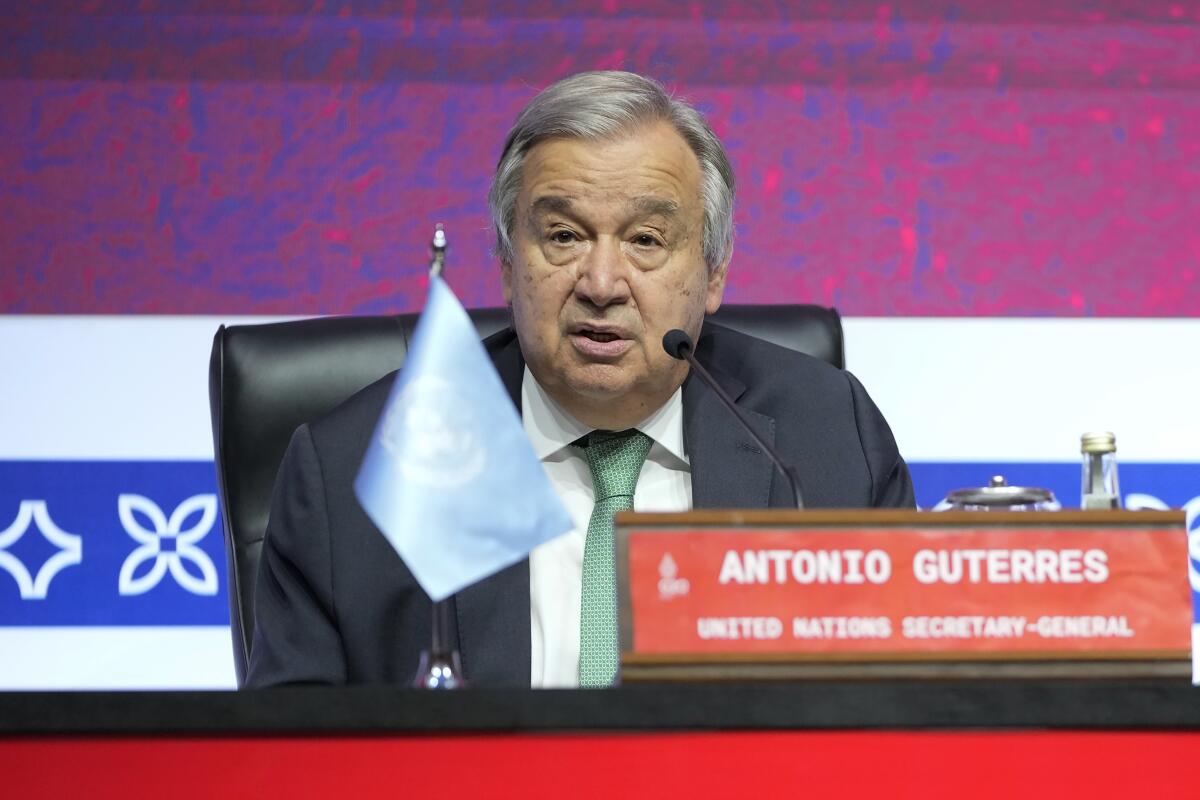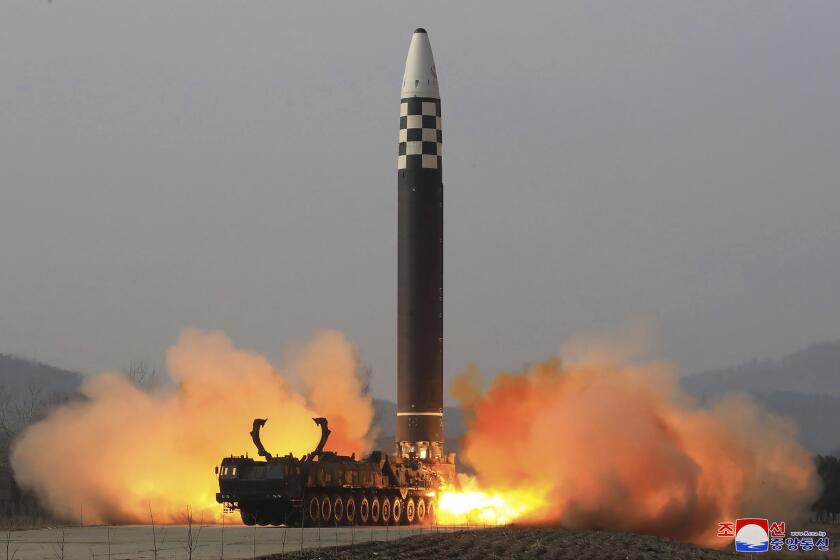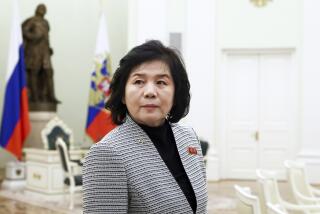North Korea slams U.N. chief as a U.S. ‘puppet’ after criticism of missile launch

SEOUL — North Korea’s foreign minister Monday called the United Nations chief “a puppet of the United States” for joining in Washington-led condemnation of Pyongyang’s recent intercontinental ballistic missile test.
U.N. Secretary-General Antonio Guterres had issued a statement strongly condemning North Korea’s ICBM launch Friday and reiterating his call on the North “to immediately desist from taking any further provocative actions.” Guterres’ statement came after the U.S. and other countries issued similar criticism of the missile test, which showed North Korea’s potential ability to strike any part of the continental U.S.
“I often take the U.N. secretary-general for a member of the U.S. White House or its State Department,” North Korean Foreign Minister Choe Son Hui said in a statement carried by state media. “I express my strong regret over the fact that the U.N. secretary-general has taken a very deplorable attitude, oblivious of the purpose and principles of the U.N. Charter and its proper mission, which is to maintain impartiality, objectivity and equity in all matters.”
At Japan’s request, the U.N. Security Council scheduled an emergency meeting for Monday morning on the ICBM launch. Choe said that this “clearly proves that [Guterres] is a puppet of the U.S.”
It’s unclear whether the Security Council can impose new economic sanctions on North Korea because China and Russia, two of the council’s veto-wielding members, have opposed previous moves this year by the U.S. and its allies to toughen sanctions over Pyongyang’s tests of ballistic missiles.
On Sunday, top diplomats from the world’s major industrialized democracies issued a joint statement calling for strong steps by the council. “North Korea’s actions demand a united and robust response by the international community, including the need for further significant measures to be taken by the U.N. Security Council,” said the statement by foreign ministers from the Group of 7 nations — Canada, France, Germany, Italy, Japan, Britain and the U.S.
North Korea’s recent barrage of missile tests is raising a question: How does the country pay for the tests?
Friday’s ICBM launch was the latest in North Korea’s ongoing torrid run of missile tests, which experts say are meant to boost its nuclear capability and increase its leverage in future diplomacy.
North Korea said leader Kim Jong Un observed Friday’s launch of its Hwasong-17 missile and called it another “reliable and maximum-capacity” weapon to contain U.S. military threats. Some experts say the Hwasong-17 is still under development. It’s the North’s longest-range missile and is designed to carry several nuclear warheads to overcome U.S. missile-defense systems.
North Korea has argued that its testing activities are a warning to the U.S. and South Korea over their series of joint military drills, which the North believes were an invasion rehearsal. Washington and Seoul maintain that their exercises are defensive in nature.
In her statement, Choe again defended her country’s missile tests, calling them the “legitimate and just exercise of the right to self-defense” against “provocative nuclear war rehearsals” by the U.S. and its allies. She said that it was “most amazing and deplorable to me” that Guterres blamed North Korea for a recent flare-up in tensions on the Korean peninsula and not the U.S.
A day before the ICBM test, Choe threatened to launch “fiercer” military responses to steps by the U.S. to bolster its security commitment to South Korea and Japan.
More to Read
Sign up for Essential California
The most important California stories and recommendations in your inbox every morning.
You may occasionally receive promotional content from the Los Angeles Times.











